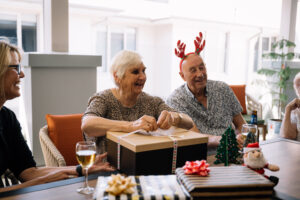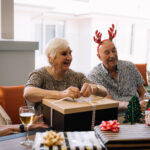Whilst cancer is a concern at any age, the disease is especially prevalent in the elderly. There are statistics and data available from many sources to support this, but knowledge is power. If you’re aware of the dangers, you can help to modify the risk factors, be mindful of the symptoms and act quickly, if there are any concerning signs. An actual diagnosis of cancer can be really difficult to get your head around, however modern medicine and technology has come a long way in the diagnosis and treatment in making a recovery.
What are the most common cancers in the elderly?
- Prostate Cancer – almost half the cases are in men over the age of 75.
- Breast Cancer
- Bladder Cancer
- Lung Cancer
- Pancreatic Cancer
What are the warning signs?
Prostate Cancer – Frequent urge to urinate, weak or blocked urine flow, pain or burning whilst urinating, blood in the urine, pelvic pain, bone pain, reduced appetite, weight loss.
Breast Cancer – If there are any changes in the breast in regard to feel, appearance or discharge.
Bladder Cancer – Frequent urination, blood in urine, a distended bladder or burning sensation when urinating.
Lung Cancer – Chest pain caused by coughing, intense or ongoing coughing, breathing difficulty, chronic pneumonia and coughing up blood.
Pancreatic Cancer – does not cause any signs or symptoms in the early stages so is difficult to diagnose. The most common sign is jaundice.
Early Cancer Treatment
Often the elderly present with other health issues such as high blood pressure or diabetes. These conditions can affect treatment options and the negative severity of side effects from the treatment. Limited mobility may also present a hurdle, as it makes it difficult for the elderly to care for themselves. Financial issues stemming from medical costs can also impact the outcome of treatment.
Survival rates from cancer are better nowadays than what they once were. Statistics vary according to the type of cancer.
No matter what age one receives a cancer diagnosis, it’s important to have a strong support network The emotional impact on the patient and their family members can be devastating. It can help to join a support group, communicating with others that have been through, or are going through your particular cancer. It’s important to be a true advocate for the healthcare of your loved one who is suffering from cancer.
If your loved one is dealing with cancer, they don’t have to face it alone. We have residents that have battled cancer, coped with treatments and recovered. Their pace may be slower, and they may have had to adjust their activity accordingly in our Lifestyle Program and their Social life, but we work through the challenges with your loved one.
If you would like to know more about our homes and accommodation option, please call our dedicated Admission Team on 1300 104 663 or visit our Site here.






